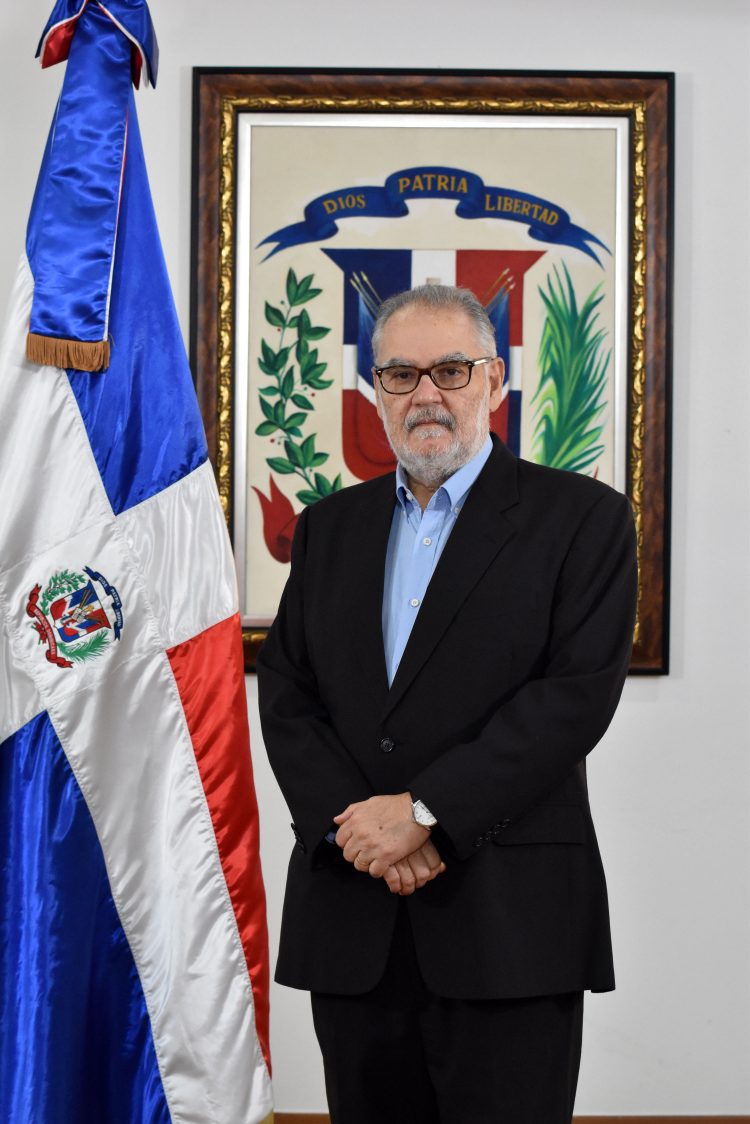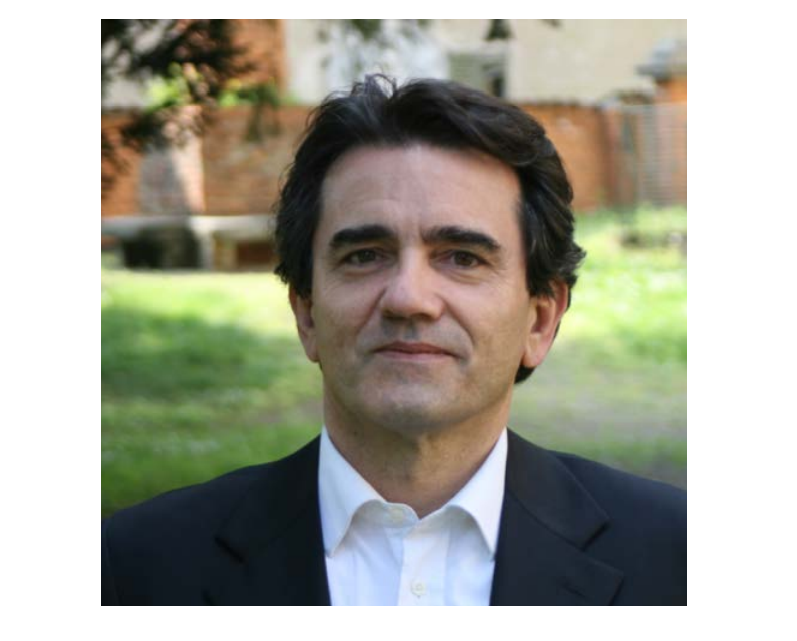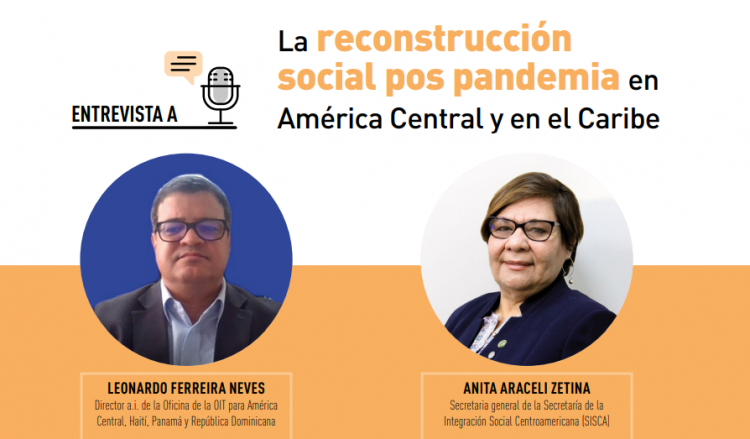Interview with Helen Darbishire, director of Access Info Europe and Gabriel Delpiazzo, president of the Executive Council of the Uruguayan Unit for Access to Public Information and President of the Transparency and Access to Public Information Network.

Question: What role do you think transparency and the right of access to public information are playing in this pandemic? To what extent is the pandemic threatening this right and to what extent is transparency proving useful in combating the crisis?
Helen Darbishire: In 2020, we have seen a great demand for information from journalists and the general population, who wanted to have basic data on what was happening. In the last twenty years, in which technological advancement has paralleled the development of access to information, people have been raising their expectations regarding wanting to be informed and we were now used to having immediate access to data, but this trend has become more apparent during the pandemic.
Gabriel Delpiazzo: Just like using a mask or hand washing, transparency has become one more preventive measure; perhaps it is even more important than the rest, because to understand that you have to wear a mask or that we have to cough or greet one another in such and such a way, you must first be informed. As Helen said, citizens are demanding the basic data on what is happening, the measures they have to take to prevent the virus from spreading and on the state of their country in relation to that of their neighbours and that of the world in general. Even before the pandemic, in many areas we used to say that the right of access to public information saves lives, and we invoked it as an instrumental right for the protection of other rights, such as the right to health – for example we had the case of a newspaper report leading a school to develop a fire emergency plan – with the pandemic this has become clear: we need information to take better care of ourselves and our loved ones. And not only in regard to health, because the pandemic has also affected other areas such as the economy and work, in which information also became a necessary tool for understanding what type of measures and aid were being provided. Finally, as Helen also pointed out, citizens are not only demanding information, but they are also demanding that it be delivered quickly and with certainty. During the pandemic we have witnessed such an explosion of information that official information offered through active transparency mechanisms and available at a single click became a fundamental guarantee.
P: At the beginning of the pandemic, states of alarm were proclaimed in many countries in Europe and Latin America, which, to a greater or lesser extent, resulted in limitations on the right of access to public information. To what extent did this condition the ability of the bodies that guarantee transparency to respond to citizens’ needs?
Helen Darbishire: This issue divided European countries into two camps, countries that suspended the administrative deadlines -including, as collateral damage, the deadlines for processing requests for access to information- and those that did not. The decision to do so or not had to do, mainly, with the seriousness of the situation during the first months of the pandemic. Countries like Spain did, others like Germany did not, and there was also a group of countries that did not suspend them but did have to extend them. What could not be done in Europe is what did take place in Latin American countries such as Argentina, where the Access to Public Information Agency managed to protect access to information as it was recognised as a fundamental right. In Europe in general, as this is not recognised, we are missing a mechanism to defend this particular right. However, we did see that many administrations, despite the general suspension of deadlines and the fact that officials were working from home, made a great effort to continue processing requests. In fact, I spoke with European Council officials who told me that the biggest problem was not the suspension of deadlines by law, but that is was technically not possible to access the information requested from their homes. This has since improved considerably, even where officials continue to telecommute in whole or in part, and, in general, we have been able to adapt to regain the pace of administrative deadlines.
Gabriel Delpiazzo: During the first moments of the pandemic, it was restricted or even threatened. Later, along the way, either because the organisations gradually incorporated the necessary technical means or because of the pressure exerted by citizens demanding the information that was not being disseminated, this threat was gradually mitigated. In Latin America, many countries also suspended the deadlines for the procedures, which meant not responding to the requests for information that were received. Regarding this, there was strong criticism from the public and from the press, which in some countries -as is the case with Mexico- led to the lifting of the suspension of deadlines to attend exclusively to requests for information related to the pandemic. It is not the ideal scenario, of course, but it is what happened in that first instance; today, the situation is a little more normalised. I have also seen a threat and a restriction in terms of active transparency, in the daily dissemination of epidemiological data. The situation in Latin America has been quite uneven on this point; There were countries that fulfilled their task of disseminating information on a daily basis and others that made some attempt to restrict the information or, even worse, to provide partial information. Once again, citizens and social networks moved into action, and with their demands managed to reverse this type of practice which, far from legitimising the institutions, significantly delegitimises them. Opacity also translated into problems in other areas, especially in emergency purchases of medical supplies; an issue conducive to generating inappropriate practices that we will have to monitor more closely. Finally, a general threat, not attributable to governments or specific public bodies, is over information. We have received so much information and so much data – from the media, from governments, from the WHO … – that a breeding ground for fake news has been created. At this point, active transparency, as a mechanism charged with creating an official, complete and truthful source of information, becomes the basic guarantee to alleviate these threats.
Gabriel Delpiazzo: The right of access to information has two aspects, the right to be answered when information is requested and the right of institutions to actively disseminate information related to their activity. I have previously only referred to the first, but it is true that when the normal performance of public entities was interrupted, the proactive publication of information was also interrupted. At the same time, we saw that governments made an enormous effort to maintain this proactive dissemination of information, especially as regards data and recommendations related to the pandemic. The role of journalists has also been very important, because, at the beginning, many press conferences with public officials were suspended, but little by little they found ways to organise them remotely. Journalists’ questions and demands for information were crucial in the early stages of the pandemic, and Access Info and other organisations collaborated extensively with journalists to submit requests that could not be submitted in other ways.
With regard to public procurement and contracting, the European Union has legislation that allows the use of urgent procurement procedures, but only under certain conditions. The regulations may not be sufficient in terms of transparency, but, at least, they require that when governments use this emergency mechanism to let contracts they have to publish a justification. However, during the worst moments of the crisis they did not do so and contracting was even carried out without having the minimum documentation required by law. Once the initial panic was over, we were able to have a public debate about how the procurement of materials and equipment should be carried out and we have helped investigate dubious companies that emerged from nowhere offering products that sometimes did not even exist. As a result, we have seen the need to strengthen our control systems for public tenders, as well as the transparency requirements for companies and trade and company registers, to try to prevent governments from being deceived again.
P: There has been a lot of talk about the use of open data for decision-making by governments. In this regard, both in Latin America and in the EU, we find examples of good collaborations between health systems and the bodies that guarantee and promote the right of access to information, but there have also been bad experiences in this area. What is your reflection on the role of new technologies and open data in the context of this pandemic?
Gabriel Delpiazzo: Technology has become a fundamental tool. In abnormal situations, it has allowed public offices to function more or less normally, without having to suspend, among many other things, the procedures for access to information. It has also become essential for data processing, to combine information and generate new data that allow new measures to be taken. Against this, we find the need to preserve the privacy of personal data, especially when talking about data as sensitive as those that have to do with people’s health. Here it is very important not to create a false opposition between public transparency and data privacy; these are two fundamental rights that require consideration on a case-by-case basis and a harmonisation that is certainly not simple. In Uruguay, and certain other Latin American countries, there are regulations that in the event of a pandemic enable the health authority to process health data to adopt measures. In these cases, the general principle on the matter, which is the informed consent of the owner, sometimes does not apply. However, like all exceptions, it requires a very strict interpretation: the fact that the health authority can have these data does not allow anyone else to have them; also, other principles such as the purpose -what the data are used for-, security -guaranteeing the safeguarding of information- and anonymity -processing the data while preserving the identity of the person- must be maintained to avoid unnecessary stigmatisation. It is about finding a difficult balance, which has generated many challenges, but the truth is that technology has been generally beneficial, because, although it is not without risks, it has allowed us to continue to function and provide better information to citizens.
Helen Darbishire: We have to distinguish between the data that an administration uses to make decisions, which do not have to be open, and the open data, which can be the same but anonymised. With this as a starting point, there are two challenges relating to the data. On the one hand, the immediacy with which we demand data has highlighted shortcomings in terms of digitisation; on the other, problems have been detected in national data recovery systems, especially in large countries such as Spain, France and Germany. Likewise, it is very important to publish these data, for two reasons: first, knowing the basis on which governments make decisions generates trust in the institutions; secondly, it is essential that civil society, academics, scientists, etc., have access to this information so they can reach their own conclusions and even participate in decision-making. I have to say that, at least in Europe, in general, a good job has been done in ensuring at least the publication of reliable data on what was happening, despite the fact that there have been great difficulties and that countries, such as Spain, had to stop and rethink the system for counting cases; but in general, European countries have done well if we compare them with cases like Brazil, where there were attempts to suppress the publication of data.
Another relevant issue is tracking systems. Germany is very proud of their implementation and they are said to have been key to South Korea’s success, although they have not been without their problems. In this regard, what I did like a lot was the response of the guarantor organisations and civil society in general, which put on the table the need to protect our data. I’m not against tracking apps, but they have to be implemented in a way that protects people’s privacy. In South Korea, for example, through the app, information on a man who had spent the night in various bars and sex clubs was made public; these data can affect the person in ways that have nothing to do with health, so we should be more careful with them.
Gabriel Delpiazzo: In Uruguay, the development of an application generated a very interesting public debate. It was concluded that it can be a very useful tool but that it certainly requires an impact assessment in terms of data protection. Certain rules were established. The first and foremost, is that it will only be applicable to those who download it and who also give their consent to be monitored, but there are also rules that specify that only the health authority can have the information, and then only temporarily -once the pandemic is over, all the data will have to be deleted- and that, under no circumstances, can it be used to monitor individual movements, that the information has to be stored in secure centres and that the data cannot be combined with other data sources. It is very important that all these points are met so that the application does not become a Big Brother that would be very harmful to people’s privacy.
P: You work in reference networks on the matter, the Transparency and Access Network as a public body and Access Info as a civil society organisation. What measures have you taken in the context of the pandemic to deal with it through collaborative projects or specific plans?
Helen Darbishire: A very positive aspect that I have seen with the pandemic is how strongly the global community has come out in defence of transparency and open government -including civil society, guarantor entities and some governments-, especially in the Americas and Europe. We have been able to organise ourselves quite quickly and, through countless video calls and webinars, we have been able to define the agenda, have conversations with governments, carry out training workshops for journalists, etc. The bridge between Europe and Latin America has proven to be especially important, because they are the two most developed regions in the world in terms of access to information and data protection, but we have also been in contact with countries in Asia and Africa, where some governments made a great effort to publish data about what was happening. The community has been able to respond and has been able to exchange experiences, which is very important. We have seen what was working and what was not working, we have been able to reach conclusions about how the pandemic has helped us understand the weaknesses of our transparency systems -now we know, for example, that where it is not recognised as a fundamental right it is more difficult to defend- and we are defining the agenda for the next phase, which I would not dare to call post-pandemic because even though we have recovered a certain normality, we are still in the crisis. We are in a completely exceptional situation which at the same time represents a great opportunity, given that in recent months we have understood better than ever to what extent it is important to collect, publish and share information, as well as to ensure the participation of society as a whole in taking decisions. We have a lot of work to do, but at least our priorities are very clear.
Gabriel Delpiazzo: The Transparency and Access Network (RTA) brings together all the guarantor bodies in matters relating to the right to information in Ibero-America, which originated from a Latin American logic but later happily incorporated Spain’s Council for Transparency, whose mission is to be an space for collaboration and the exchange of experiences. It has worked very well in good times and I am proud to say that it has also worked in bad times, in which collaboration between countries has actually intensified. It has given rise to numerous conversations and consultations also through video calls and webinars, which, although their negative point is that they lack physical presence and human contact, have the advantage of being in a certain sense more participatory, since they allow attendance by people who often cannot travel. We have worked very well in these spaces, supporting those who needed it most and receiving the lessons learned everywhere. For example, with the help of Eurosocial+, a workshop was held to collect and preserve these reaction experiences in times of crisis, generating added-value material that will undoubtedly serve to resolve other types of eventualities in the future. Also, with strong support from the INAI in Mexico, a microsite was established on the RTA website to collect the good experiences of the countries and we worked together to have a multi-channel strategy in regarding the dissemination of information, so that each country does not have a single source of information on the pandemic, but rather ensuring each has different channels: Specific websites, applications, WhatsApp, phone numbers, social media, etc. In these extraordinary times, in which collaboration and sharing have become more important than ever, the RTA has shown its full value.




